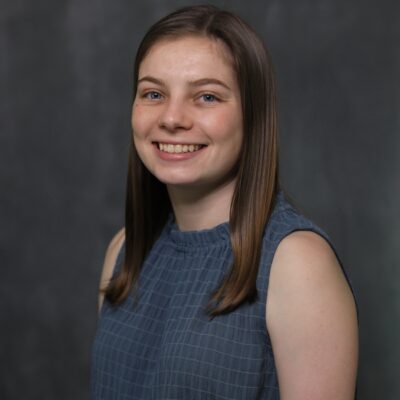Student Spotlight: Meagan Sundstrom

April 22, 2024
Meagan Sundstrom is a doctoral candidate in physics from Walpole, Massachusetts. She earned her B.S. in mathematics-physics from the University of Connecticut and now studies the role of gender in physics education under the guidance of Natasha Holmes at Cornell.
What is your area of research and why is it important?
I am in the field of physics education research. I use social network analysis to understand the role of gender in undergraduate students’ recognition of their strong physics peers. For example, my statistical models have found in many physics courses that students’ nominations of their strong peers disproportionately favor men over women. I have also led a multi-institutional study finding that for students receiving the same amount of peer recognition, women report significantly lower perceptions of their recognition than men. This research is crucial for understanding the experiences of historically underrepresented students in physics and informing the design of instructional activities.
What are the larger implications of this research?
The underrepresentation of women in undergraduate science courses and, subsequently, in scientific careers, is well-documented. My research deepens our understanding of one important barrier to entry and retention in science faced by women: that women tend to have lower self-perceptions of their science abilities and their identity as scientists than men. The results of my analyses point to specific instructional activities that may broaden the population of scientists by helping women and other marginalized groups feel recognized as scientists, develop their science identity, and, subsequently, persist in their science courses and pursue a scientific career.
What does it mean to you to be a Bouchet Scholar?
Becoming a Bouchet Scholar is an incredible honor that comes with many exciting opportunities. I will be joining a community of like-minded scholars who seek to make social change within higher education. I am eager to exchange ideas within this new network to initiate, spread, and support service opportunities across disciplines and institutions and to support one another’s professional development and career advancement.
How do you exemplify the five pillars of the Bouchet Society—character, leadership, advocacy, scholarship, and service?
As a woman in physics, NSF Graduate Research Fellow, and NextGen Professor, I am dedicated to advancing diversity and inclusion in science in support of the mission of the Bouchet Society. I have served in leadership roles hosting both the Conference for Undergraduate Women in Physics and the Expanding Your Horizons conference at Cornell. Through Project SHORT, I have mentored prospective graduate students from historically underrepresented groups in physics as they prepare their application materials. I have also supported seven undergraduate and graduate students conducting physics education research.
You were named first place winner in the 2024 Three Minute Thesis (3MT) competition. Can you describe the process of condensing your research into a three-minute presentation?
Condensing five years of research into three minutes was certainly challenging! I tried to think about the most important and interesting results from my projects and why a general audience might care about those results. I iteratively wrote and revised my presentation many times, eventually landing on one that clearly identified the problem my research aims to solve, what the process of conducting research in my field looks like, the prominent findings of my work, and the broader impact of these findings.
How will you take what you’ve learned from participating in the 3MT and use it in future academic and professional contexts?
I learned quite a few skills through this experience. I will definitely use the concise storyline of my presentation to frame my written Ph.D. thesis this year. I am also excited to use this summary of my research when I explain my work to peers, friends, and family outside of my field. Practicing and then actually presenting my presentation significantly improved my public speaking skills, from thinking about my speaking pace and which words to emphasize to gaining more confidence in myself in front of an audience. I am eager to bring these skills to my professional talks in the future!
What are your hobbies or interests outside of your research or scholarship?
Outside of research, I enjoy playing lacrosse, hiking, traveling, board games, and cooking.
Why did you choose Cornell to pursue your degree?
After completing my undergraduate senior thesis in physics education research, I knew I wanted to continue in this field in graduate school. I decided to pursue my Ph.D. under the advisement of Natasha Holmes for her expertise in reforming and evaluating instructional physics labs and her supportive mentorship style. I also chose Cornell because of its growing discipline-based education research community. I have found avenues of support from a handful of different departments and organizations on campus that push my research forward.
